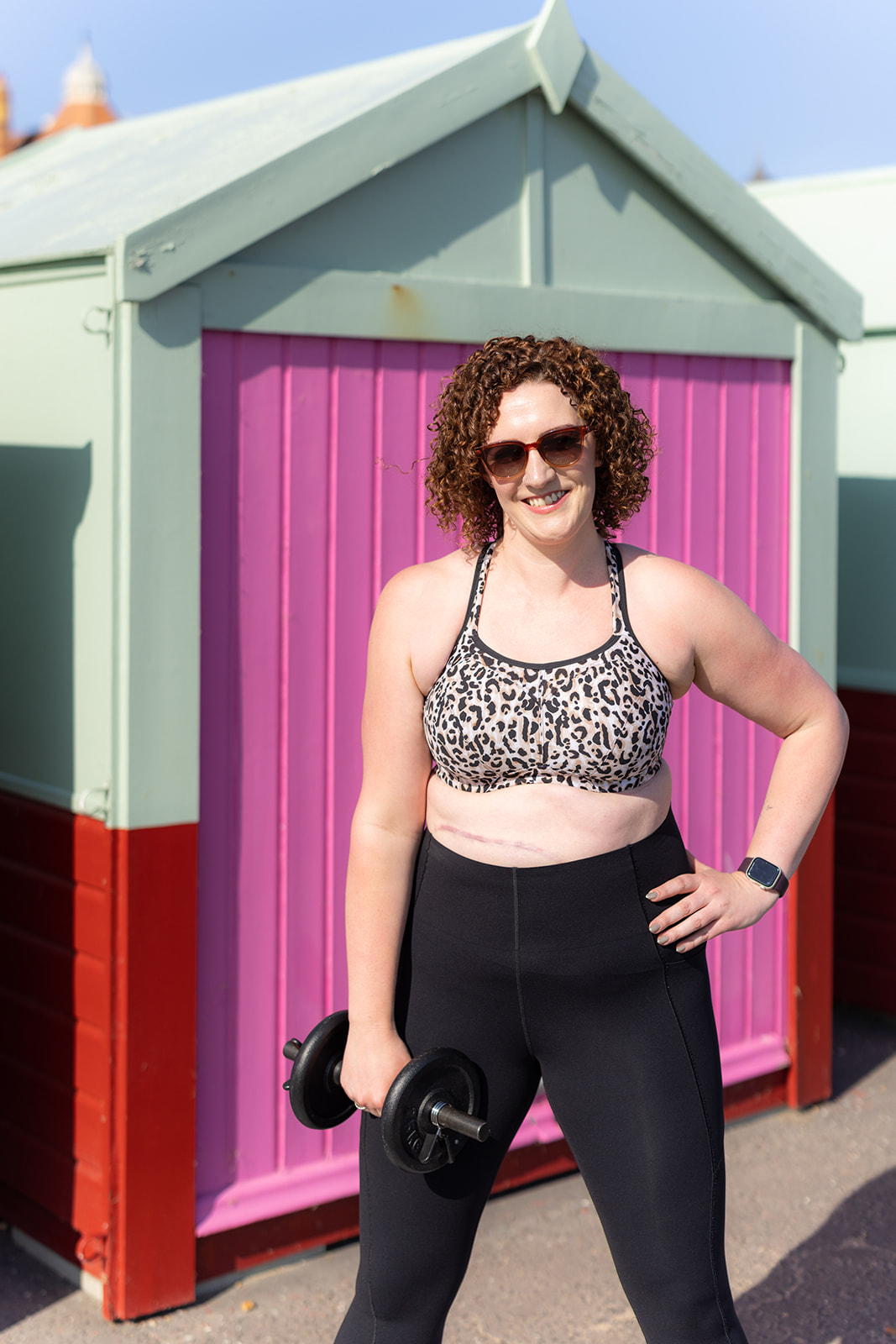Many people have long-held beliefs about fitness culture and the industry and, very slowly, change is starting to happen. Today, Horsham-based female personal trainer, Becky, explores the topic of how fit a personal trainer should be…
Time to talk about one of the biggest taboos in the fitness industry: the idea that personal trainers have to be at a certain level of fitness themselves, or even maintain a specific look. Let’s answer the question once and for all: do fitness professionals have to be “fit”?
What even is fitness?
In 2024, I finally saw some better discourse about fitness not having a specific look. During the Olympic and Paralympic Games, there were several comparisons drawn between different athletes. Many of us will agree that elite athletes are among the very fittest people on earth. They’re also demonstrative of the fact that fitness looks different depending on which sport you participate in, as well as many other things.
And so that should be the first pushback we make when someone says something like, “you don’t look very fit”.
“Well, quite frankly, what does fitness look like?”
Beauty standards versus fitness assessments
Of course, what many people mean when they say that someone “looks fit” is that they conform to at least one societal beauty standard – that their body is a certain shape, and probably quite a lean one at that. They’ll also imply that the person is in their 20s, able-bodied, and almost certainly White and cisgender.
In reality, very little of this is about physical fitness, and all of it is about beauty standards.
Testing and assessing physical fitness is very different, and leads us to a whole other problem.
How do you assess fitness?
Personal trainer qualifications in the UK – both the basic Level 3 certification, and many other higher level ones included – will teach you that there are various ways of assessing fitness. Generally, these fall into three categories: cardiorespiratory, strength, and body size.
Examples of cardiorespiratory fitness assessments include a 6-minute walk test, and VO2 max. Strength may be tested via situations such as a one rep max test, and body size can be measured via weight, waist/height ratio, or the dreaded BMI.
All of the above tests have their limitations. Many of them test just one metric, and the ability to perform in one area doesn’t necessarily make you fit or unfit in my opinion. Lots of these tests are also ableist – a wheelchair-user can’t perform a 6-minute walk test, and whilst adaptations may be available, it’s still unfair to claim that they are unfit on the basis of being unable to participate in the way the test was intended.
Do personal trainers undergo fitness testing?
The short answer is no. The pre-qualifications for a personal training certification in the UK are that you possess basic literacy and numeracy skills, can afford to pay for the course, and are willing to do it. That’s all.
None of us has to run on a treadmill for a certain length of time (thank goodness), or deadlift our bodyweight. Just as gyms don’t require people to meet a certain standard in order to sign up for membership, nor do fitness instructors have to pass a test in the civilian world in order to qualify to learn to train others.
And I think that’s brilliant.
Partly because I’d be unlikely to “pass” a cardio test myself, and also because that openness is a reflection of society’s needs and wants. And: achieving a certain level of fitness yourself proves nothing other than that you can train yourself – it doesn’t say anything about potential coaching ability. It says a lot about your level of discipline and commitment over a certain period of time, but it doesn’t mean that you can inspire others, or empathise with them, and encourage them.
In fact, I’ll be so bold as to say that it often demonstrates that the opposite is true.
I said what I said.
Should you judge a personal trainer on their level of fitness?
Again: no. Because which standard of fitness are you asking them to meet? Does it prove that they’re a good coach? Are their goals the same as yours?
It may be that your coach’s own level of fitness is something that you find important or inspiring. And it is also entirely possible that you and they are very different in your outlook, which goes in both directions.
Hiring a coach due to what they look like isn’t the only way you should assess whether or not they’re right for you. My advice is to consider how you’d like to work with someone, and make your choice based on a positive working relationship between each other, rather than what their relationship with their own training is like.
